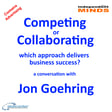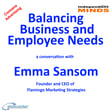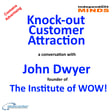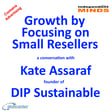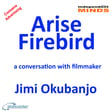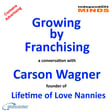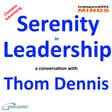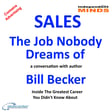
Motivation Matters – a conversation with Stephen Walker
Explore the connection between transformational leadership and the motivation of employees
Stephen Walker is an engineer who became frustrated when people failed to share his enthusiasm for the work tools he created. That frustration became a fascination for discovering what motivates people at work to engage in new activities and the role of leaders in maximising that motivation.
Stephen is the founder of Motivation Matters a consultancy that specialises in helping organisations improve the motivation of their employees.
In this episode of The Independent Minds Stephen and host Michael Millward explore
- What makes employees feel motivated.
- How motivation adapts to different circumstances
- The impact of different types of employer employee relationships
- The challenges for leaders
You will leave this episode with a wider understanding of motivation and how you might improve the motivation of your team.
More information about Stephen Walker and Michael Millward is available at abeceder.
Audience Offers
Audience Offers – listings include links that may create a commission for The Independent Minds
The Independent Minds is made on Zencastr, because as the all-in-one podcasting platform, Zencastr really does make creating content so easy. If you would like to try podcasting using Zencastr visit zencastr.com/pricing and use our offer code ABECEDER.
Travel With discounted membership of the Ultimate Travel Club, you can travel anywhere at trade prices on flights, hotels, trains, and many more travel related purchases.
Fit For Work We recommend The Annual Health Test from York Test; a 39-health marker Annual Health Test conducted by an experienced phlebotomist with hospital standard tests carried out in a UKAS-accredited and CQC-compliant laboratory.
A secure Personal Wellness Hub provides easy-to-understand results and lifestyle guidance
Visit York Test and use this discount code MIND25.
Visit Three for information about business and personal telecom solutions from Three, and the special offers available when you quote my referral code WPFNUQHU.
Being a Guest
We recommend the podcasting guest training programmes available from Work Place Learning Centre.
We use Matchmaker.fm to connect with potential guests If you are a podcaster looking for interesting guests or if you have something interesting to say Matchmaker.fm is where great guests and great hosts are matched and great podcasts are hatched. Use our offer code MILW10 for a discount on membership.
We appreciate every like, download, and subscriber.
Thank you for listening.




